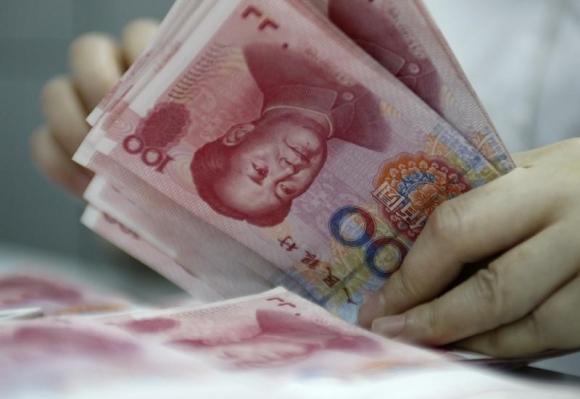 |
|
An employee counts yuan banknotes at a bank in Huaibei, Anhui province June 22, 2010.[Photo/Agencies] |
The People's Bank of China said on Tuesday that it will allow the issue of large-denomination, floating-rate tradable certificates of deposit to individuals and companies, a key step forward in interest rate liberalization.
The CDs, which are deposit agreements by lenders, will be tradable in the secondary market. There will be nine maturities ranging from one month to five years, the central bank said in an online statement.
The floating rates will be based on the Shanghai Interbank Offered Rate, it said.
The minimum size for individuals will be 300,000 yuan ($48,400). For companies, it will be 10 million yuan.
These securities will give commercial banks more scope to set rates, said experts. They said the CDs will support the nation's move toward market-determined interest rates and will also reduce borrowing costs.
The central bank said that the CDs will be covered by the deposit insurance program.
After CD issues start, the ceiling on the floating range for deposit interest rates is likely to end "at a proper time", Sheng Songcheng, director of the PBOC's surveys and statistics department, said at a forum over the weekend in Shanghai.
Zhang Xingrong, head of the banking industry research at Bank of China Ltd, said: "Issuing CDs to companies and individuals will drive deposit rate liberalization because banks will set the terms of CDs according to market forces."
The financial instrument will help commercial banks stabilize their deposit sources and optimize their liquidity management. Banks will decide when to issue CDs, what denominations to issue and the maturity and interest rates on these instruments, Zhang said.
Wen Bin, principal researcher at China Minsheng Banking Corp, said small and medium-sized banks will be especially interested in issuing CDs to widen their funding sources, because they are restricted by loan-to-deposit ratios of as high as 75 percent.
"It will test the banks' ability to set prices and manage assets," Wen said. "Banks have to pay back principal and interest to CD investors even if losses occur, so the lenders must strike a balance between risks and returns while making sure that they can make a profit with CDs."
Until now, CDs could only be issued and traded among banks.
In the first quarter, 58 financial institutions issued 965 CDs totaling 713.8 billion yuan in the interbank market. Their prices were set in reference to the SHIBOR, which measures the cost of interbank lending.
Total CD transactions in the secondary market reached 537.5 billion yuan during the period, according to the central bank.
The CDs are also part of a "policy package" that the central bank has planned, along with cuts in benchmark interest rates and banks' reserve requirement ratio, to ease liquidity and support the real economy, according to Sheng.
The world's second-largest economy has been under pressure this year, mainly because of sluggish property investment and deflation in the industrial sector.
The PBOC has taken steps to stabilize growth, including a cut of 25 basis points in the benchmark one-year loan and deposit rates on May 10 and a cut of the RRR by 1 percentage point in April, the largest reduction since November 2008.
The central bank also increased the upper limit of the floating band of deposit rates to 1.5 times from 1.3 times. It plans to eliminate the limit by the end of the year.
